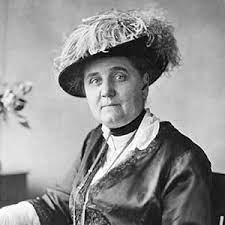Addams, Jane

Bio: (1860-1935) American sociologist and social reformer. In 1889, Jane Addams founded Chicago's Hull House, a non-formal organization for informal education and continued learning. This institution also served for the sociological education of women. Addams advocated for women's suffrage, child protection, and the abolition of child labor, regulating factory labor, reducing poverty, and immigrant and African-American rights. In the book The Spirit of Youth and the City Streets (1909), she presents the thesis that city life destroys the spirit of youth, and that it is necessary to introduce programs of games and entertainment in which the spirit of democratic cooperation, free speech, and collective action will develop. Throughout her life, as a fiery pacifist, she fought for the ending of all the wars and her books dealing with these topics are New Ideals of Peace (1907) and Peace and Bread in Time of War (1922). Her pacifist efforts were crowned with the Nobel Peace Prize in 1931. Addams researched the social roots of poverty and crime. Due to her scientific and practical attempts to reduce poverty and for the implementation of social reforms, she is considered one of the founders of the field of social work. In forming her sociological ideas, she combined the basic ideas of symbolic interactionism with ideas of feminism and pragmatism.
Main works
Hull-House Maps and Papers (1895);
Democracy and the Social Ethics (1902);
Newer Ideals of Peace (1907);
The Spirit of Youth and the City Streets (1909);
A New Conscience and an Ancient Evil (1912);
The Women at the Hague (1915);
Peace and Bread in Time of War (1922);
The Child, the Clinic and the Court (1927).

